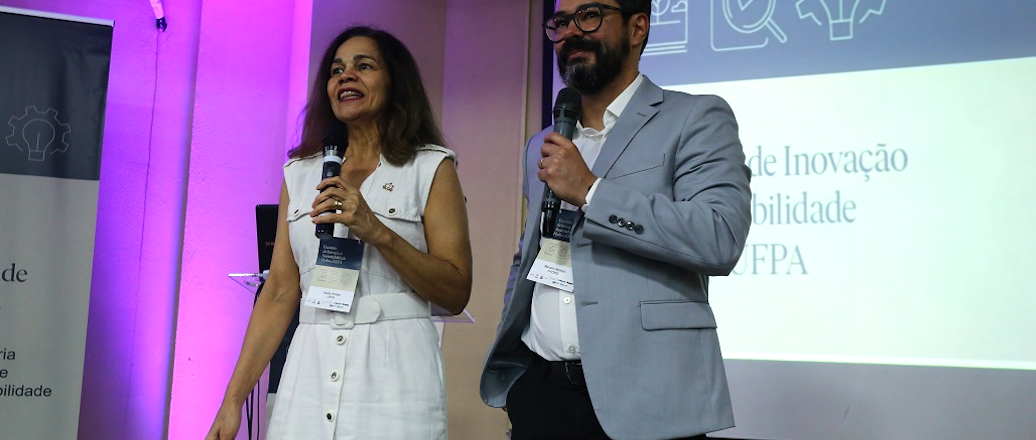On August 24th and 25th, Hydro, in partnership with the Federal University of Pará (UFPA, in portuguese), held the Innovation and Sustainability Meeting, to present challenges that could, in the future, sign an agreement with the company. The event, held in the auditorium of the Guamá Science and Technology Park, in Belém, brought together around 130 representatives and researchers from the two institutions. In total, 51 challenges were presented by coordinators, teachers and students.
The proposals were presented within the thematic areas of climate change, education, circular economy, biodiversity, local development, products and processes, governance, energy and materials. “From now on, the groups will meet again to consolidate the challenges presented at this meeting and, within 60 days, we will analyze the viability of each one again to select the new projects that will be part of the Agreement”, explains Marcelo Montini, senior chemical consultant at Hydro.
The event was a stage for ideating challenges. The groups met and, after evaluating the proposals, they were presented in the plenary to all participants. The objective was to build a portfolio of challenges for new projects under the agreement. Of the 51 challenges presented at the event, they were selected and will proceed to the next stage. After that, the agreement's coordination intends to hold a new event for the final selection of proposals and presentation of work plans.
“This is the second meeting of the agreement with UFPA and has the objective of prospecting new challenges, to increase our portfolio in the area of innovation and sustainability. We are confident that we will have very important projects. Belém is very focused on the issue of climate change and this meeting seeks solutions to challenges linked to decarbonization, biodiversity and the circular economy, themes that are extremely important for Hydro's sustainability agenda", highlights Marcelo Montini.
“Since 2019, even with all the difficulties of the pandemic, we have managed to make 15 projects viable. This partnership came at a very important time, as we were able to keep the scholarships and laboratories running. Now Hydro has presented us with new challenges, we selected 51 that were debated over these two days and the university's professors and students presented their solutions. Hence, 31 challenges were structured. We want this partnership to grow further, because this encourages the development of new researchers and other companies to take the same initiative”, highlights professor Maria Amélia, coordinator of the agreement at UFPA and director of International Relations and Agreements at the institution.
About the agreement with UFPA
The partnership with UFPA encompasses around 15 initiatives and research projects, including the use of waste and waste, meteorology and the production of solar energy. All projects are part of the technical and scientific cooperation agreement between Hydro and the university, which began in 2019. In 2020, the company announced two research projects that are already underway, for the production of cement and synthetic aggregate, both using waste originating from bauxite refining, generated at Alunorte.
In 2021, another research was announced, which is studying the feasibility of using ore waste from Hydro's bauxite mine, in Paragominas, for the production of tiles, bricks, refractory materials, low-carbon cement and even biodegradable plastic. Research is also underway on the use of solar panels in the bauxite mine in Paragominas. The university will carry out tests with a floating photovoltaic system in the Mineração Paragominas water reservoir.
In another initiative, Hydro is carrying out an environmental background survey of the municipalities of Barcarena and Abaetetuba. The study of using açaí seeds as biomass is also being carried out. The açaí residue will be mixed with mineral coal for use as fuel in Alunorte's boilers.
In addition to the initiatives already mentioned, there are three other innovation projects in the fight against Covid-19 that were supported by the agreement: production of low-cost respirators, studies of psychological effects during the pandemic and use of data science to create epidemiological models. In addition to the various lines of research, Hydro has already donated more than 1,300 tablets and 115 notebooks that are helping to promote the digital inclusion of students, in addition to donating hundreds of laboratory equipment and a vessel for research in the marine environment.
: September 12, 2023
